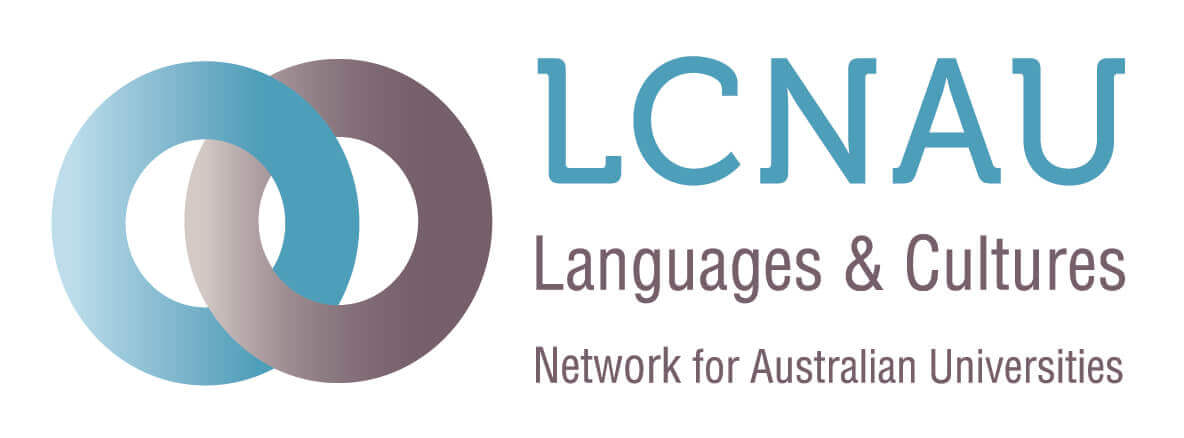Background
Language skills are critically important to maximising Australia’s capacity to participate most effectively in a globalised world. This is true for individuals, and for the nation.
A major responsibility for enhancing the nation’s languages ability rests with the university sector. Not only do universities train the teachers, but it is increasingly through the universities that students gain (or not) the linguistic and cultural knowledge and understanding that they, and the nation, need in order to participate and contribute most fully as global citizens.
Over the past three decades, the teaching and learning of languages other than English (LOTE) in Australian universities have been the subject of growing alarm, with research conducted by the Australian Academy of the Humanities and others highlighting the dire need for action. In 2007, the Group of Eight issued an important report summing up the state of languages education in Australia. Entitled ‘Languages in Crisis’, the report highlighted how critical the situation had already become: in 1997 there were 66 languages offered at Australian universities, but just ten years on, only 29 remained. Both Asian and non-Asian languages are affected by this ‘crisis’; of these surviving languages nine are offered at only one university, and only seven are well-represented.
In addition to this massive decrease in the number of languages taught, the tertiary languages sector faces the following challenges:
- uneven student enrolments across languages and universities;
- low retention and high attrition rates;
- inconsistent student pathways and expected outcomes;
- erosion of senior leadership positions in many universities and increased casualisation and juniorisation of staff; and
- negative public attitudes to the critical importance of language learning.
The need for a national network was identified by two ARC-funded studies of beginners’ languages in Australian universities (Nettelbeck et al. 2007, 2009), and a subsequent national languages colloquium staged in February 2009 (‘Beyond the Crisis’), which were initiatives led and supported by the Australian Academy of the Humanities.
Funded by the Office for Learning and Teaching (2011-2012), a project began to create such a network, and hence LCNAU was established. Members of the Project Team brought a wealth of experience and expertise to the project, spanning different languages and universities across the country. The final report to the OLT may be downloaded here.
With the OLT project successfully concluded, LCNAU became incorporated as an association in June 2013, in order to continue to be able to offer vital support to the tertiary languages sector.
LCNAU continued to be based at the University of Melbourne until late 2016, when it moved to its new home at the University of Adelaide.
The Need for a National Network
Emeritus Professor Colin Nettelbeck is former Head of the University of Melbourne School of Languages (2000-2004). He has extensive experience in the development of languages policy within the university and beyond. He has regularly participated in reviews and benchmarking of languages programs in Australia, New Zealand, Canada, the UK and the US. He brings to the project expert, detailed and current knowledge of the teaching and learning of languages in Australian universities and long experience of working with colleagues across the nation. A fellow of the Australian Academy of the Humanities, and a member of its Languages Committee. Professor Nettelbeck was leading Chief Investigator for two ARC-funded Learned Academies Special Project (LASP) studies of beginners’ languages in Australian universities: Beginners’ LOTE (Languages Other than English) in Australian Universities: An Audit Survey and Analysis (2007); An Analysis of Retention Strategies and Technology Enhanced Learning in Beginners’ Languages Other than English (LOTE) at Australian Universities (2009). The momentum generated by these reports led to the colloquium of which Professor Nettelbeck was co-convenor with Professor Lo Bianco: ‘Beyond the Crisis: Revitalising Languages in Australian Universities: Colloquium for Tertiary Languages Teachers, Researchers and Planners’ , 16-18 February 2009. The ideas argued and debated at that colloquium are at the heart of the Languages and Cultures Network for Australian Universities.
Dr Anya Lloyd-Smith (Woods) majored in Indonesian before completing her PhD in linguistics, and is currently a research fellow at the Research Unit for Multilingual and Cross-Cultural Communication (RUMACCC) at the University of Melbourne, and Project Manager for this OLT-funded project to establish the Languages and Cultures Network for Australian Universities.
Dr Lynne Li is lecturer of language studies at RMIT University where she also coordinates the Chinese Language Program at undergraduate and postgraduate levels. Dr Li has also lectured in the English-as-a-Global-Language strand for the Bachelor of Arts (International Studies) program, especially regarding business English, and in TESOL/LOTE methodology for Graduate Diploma in Education and Bachelor of Education. She is presently involved in research on the roles of international education in reshaping university enterprise in the multilingual knowledge economy context, a collaborative project with University of Western Sydney, University of Queensland, Monash University and University of New England. Her existing networks, and her early career perspective, will offer special value to the project, as will her work at the interfaces of English and Chinese.
